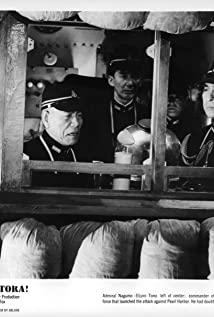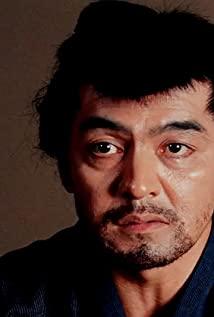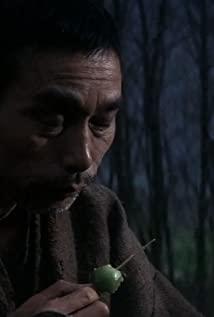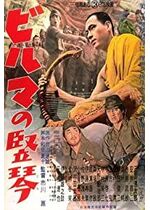-
Trycia 2022-04-20 09:02:25
Ichikawa Kun//I cared about being alive before, and then respected death. The whole film does not criticize the Japanese aggression, but let you understand their behavior from an individual, and respect the death caused by the individual's ignorance. Aside from those who do not surrender, it is worth affirming the humanitarianism of personal mourning for the defeat of the injustice in the war. In this war, the Japanese army of the aggressor fought the British army of the colonizer, and there...
-
Orin 2022-04-20 09:02:25
Rewatch. Although it is anti-war defeat (almost all anti-war films in Japan are in this direction?) But because of the shared historical background in Asia, coupled with the exotic customs of Southeast Asia, the work is much more engaging with Chinese audiences. . It can be changed to the history of Manchukuo at any time, and similarly, the people who continue to live under the great history. Visible. (Speaking of which, do I want to mark it as 3 points or 3.5 when I rate it next...
-
Lukas 2022-04-20 09:02:25
The corpses scattered all over the mountains, like the zombie movies that are flooding today, exudes the stench of decay. Ichichuankun's ability to use images to create a war and hell landscape is convincing, and this scene of corpses is enough to warn and reflect. In the film, the troops who did not listen to persuasion and refused to surrender continued to fight after Japan surrendered in the name of patriotism and devotion to the country. The end result was a bunch of paragraphs showing the...
-
Marques 2022-04-20 09:02:25
A film about the establishment of beliefs, although Mizushima practiced his beliefs by staying in Myanmar in the end, his letter still expressed more nationality than universal humanity. All are Japanese soldiers, and there are few scenes of casualties of coalition forces or Burmese...
-
Wilburn 2022-04-20 09:02:25
There is only a display of the tragic situation after Japan's defeat, but there is no reflection on the purpose of the war and its aggression. Of course, the director's original intention may not be to reflect on the war. But how can a war movie that is not anti-war be a good war movie. In the end, the film, like the Hurt Locker, became an elegy for the...
-
Jocelyn 2022-04-20 09:02:25
We are taught that war criminals are beasts. Now, how vulnerable those are. Our black-and-white films have no exterior locations, no foreigners who speak foreign languages, no collective portrayal, no reflection on human nature. Saw the British epaulettes, speaking with an authentic British accent, and the faint British horn in the background. I'm kind of moved because this is a real...
-
Adolphus 2022-04-19 09:02:44
A front-line soldier suddenly realized the cruelty of the war and escaped into the void only after the war ended. Was he sightseeing before... It's completely...
-
Icie 2022-04-19 09:02:44
This film is based on the perspective of the Japanese soldiers, which increases the sympathy for the compatriots and the divine will of the Buddha, but on the contrary, the pain of the war, the devastation to the local people, and even the local people's perspective are all ignored. , so that the film can only eventually become a work that resonates with local Japanese...
-
Daryl 2022-04-19 09:02:44
I have been working in Myanmar for more than two years. I have traveled from south to north. I have visited not only all major cities, but also many small towns, including Mudong Township in the film (now Mudong Township, Mawlamyine County, Mon State) . Myanmar is a Buddhist country, and the people are very emotional. I can understand Mizushima Yasuhiko's belief in choosing to stay in Myanmar and his conflicting feelings. Tears filled my eyes when I saw Mizushima saying goodbye to the Paozawa...
-
Jevon 2022-04-19 09:02:44
3.5 A film I have heard of for a long time, but I have never watched it. It was a coincidence that I saw it today. This is a story about World War II that the Japanese shot from their perspective. So he could choose a scene that seemed harmonious between the local people and the Japanese soldiers. But I don't think the war in those days would be what it was in the movies. Just saying that Mizushima chose to keep this move is anti-war, and even more meaningful than anti-war. Mizushima has become...
The Burmese Harp Comments
-
Amani 2022-01-20 08:03:36
Love without borders
"The Harp of Burma", a black-and-white film that was post-war Japan in 1956, may not be particularly familiar to everyone. However, there is one piece in this movie that everyone must be familiar with, and that is "Farewell" written by Mr. Li Shutong. When mentioning this song, many people would...
-
Kyra 2022-01-20 08:03:36
Limited reflection and unlimited humanity
This is a movie about the establishment of faith. Although in the end the soldier Mizushima practiced his beliefs by staying in Myanmar, his letter still expressed more nationality than universal humanity. The scenes in the film are also dictated by the fact that almost all the casualties are...
Top cast
-
Captain Inouye: The songs uplifted our spirits and sometimes our hearts.
-
Voice of Mizushima's parrot: No, I can't go back.
Director: Kon Ichikawa
Language: Japanese,English,Burmese Release date: April 28, 1967








